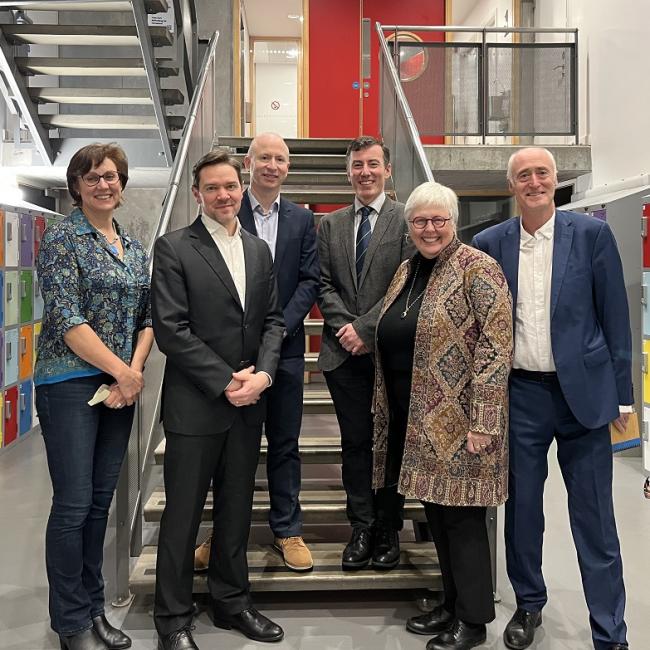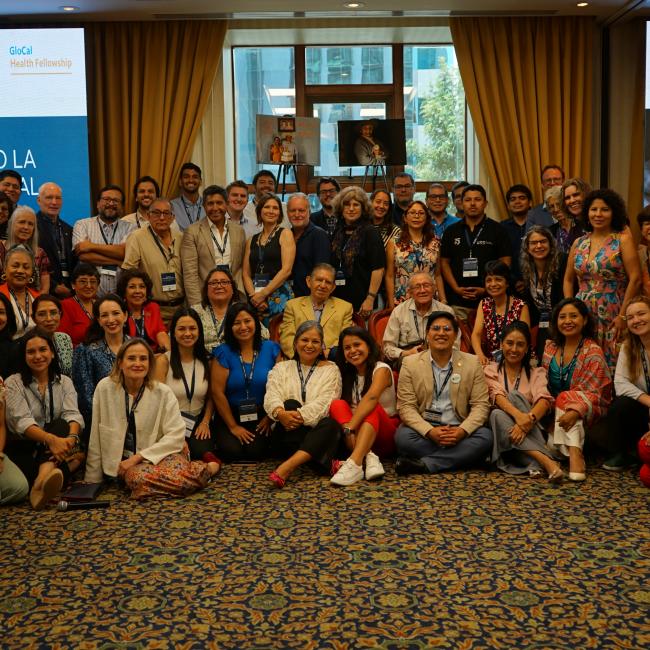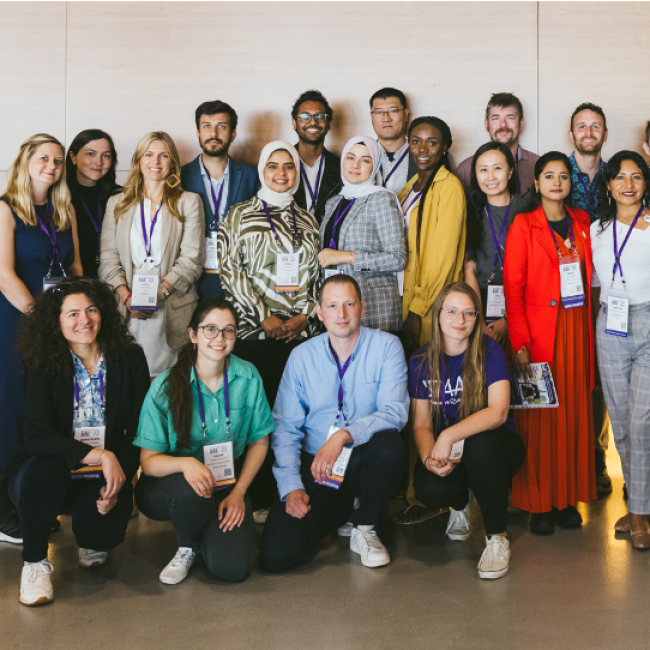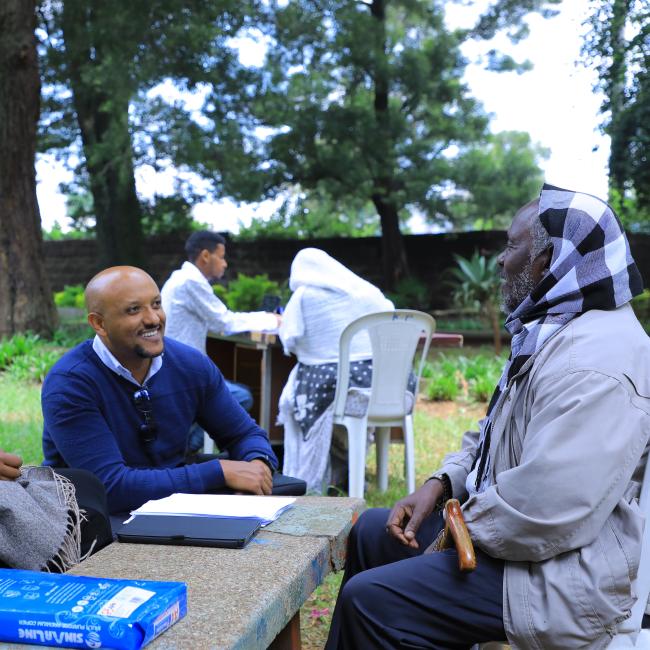GBHI Gathers in Kenya to Focus on Dementia in Low- and Middle-Income Countries

From December 6–9, members of the Global Brain Health Institute (GBHI) community—including more than twenty Global Atlantic Fellows for Equity in Brain Health, leadership, faculty, and staff—joined leading dementia researchers for “Dementia and Brain Aging in Low- and Middle-Income Countries,” a scientific conference focused on Alzheimer's disease, dementia research, and global brain health in low- and middle-income countries, as well as a regional meeting of Global Atlantic Fellows in Nairobi, Kenya.
Dementia in Low- and Middle-Income Countries
The three-day conference included presentations on important issues related to brain aging, including modifiable risk factors for dementia, HIV and dementia, cognitive testing and diagnosis, and dementia care and policy in LMICs.
“In terms of equity, LMICs are often left behind,” said Rufus Akinyemi, MD, PhD, Neurologist at the University of Ibadan, Nigeria and Global Atlantic Fellow for Equity in Brain Health. “We need to ensure that no matter who we are, where we live, or how much money we make, we have access to the same treatment, opportunities, and care.”
Alzheimer's disease and other dementias are a global crisis, with an estimated 50 million individuals in the world living with dementia today. In LMICs, the burden of disease is often greater, and some of these countries are projected to have some of the largest increases in dementia prevalence during the next few decades. This is due not only to higher incidence of dementia and lower support for caregivers and families, but also due to a significant knowledge gap about dementia in LMICs.
“We are committed to a vision of a world without dementia and recognize the needs, challenges, and opportunities for dementia research in all parts of the world, and especially in LMICs,” said Maria C. Carrillo, PhD, Alzheimer’s Association chief science officer.
The conference, made possible by a grant from the National Institute on Aging, was supported by Newcastle University, The University of Texas Rio Grande Valley, the Alzheimer's Association, the Global Brain Health Institute (GBHI), the World Federation of Neurology's Aphasia, Dementia and Cognitive Disorders Specialty Group, the International Brain Research Organization (IBRO), and AgeCap Sweden.


Atlantic Fellows Wambui Karanja (left) and Valentine Ucheagwu (right) present posters at the Dementia and Brain Aging in Low- and Middle-Income Countries in Nairobi, Kenya.
Building Bridges for Brain Health Equity Regional Meeting
In addition to the conference, GBHI hosted “Building Bridges for Brain Health Equity,” a gathering of Global Atlantic Fellows (alumni) and stakeholders co-curated with Wambui Karanja, Muthoni Gichu and Chi Udeh-Momoh, Atlantic Fellows for Equity in Brain Health.
Through visits to the Aga Khan University Hospital (including the Brain and Mind Institute led by director Dr. Zul Merali) and the Little Sisters of the Poor Care Home, participants explored local care structures and environments that support brain health and aging. The gathering also included a meeting of the African Brain Health Network, a GBHI interest group working to promote brain health in Africa, and a welcome to place by Michael Kanyingi Kimuhu, Co-Chair of the General Assembly of Partners, Older Persons Constituent Group, UN Habitat.
Learn more about the week’s activities here.


Participants visit the Brain and Mind Institute at Aga Khan University Hospital (left) and the Little Sisters of the Poor Care home (right). Photos by Jennifer Cahn, University of Texas Rio Grande Valley.





